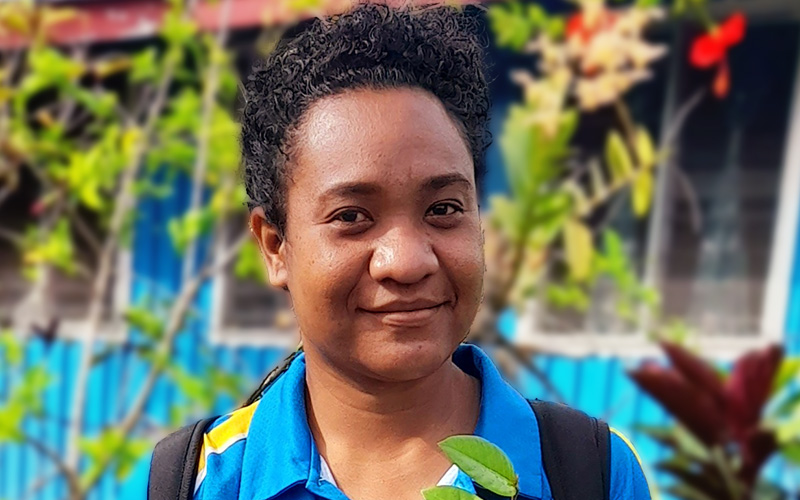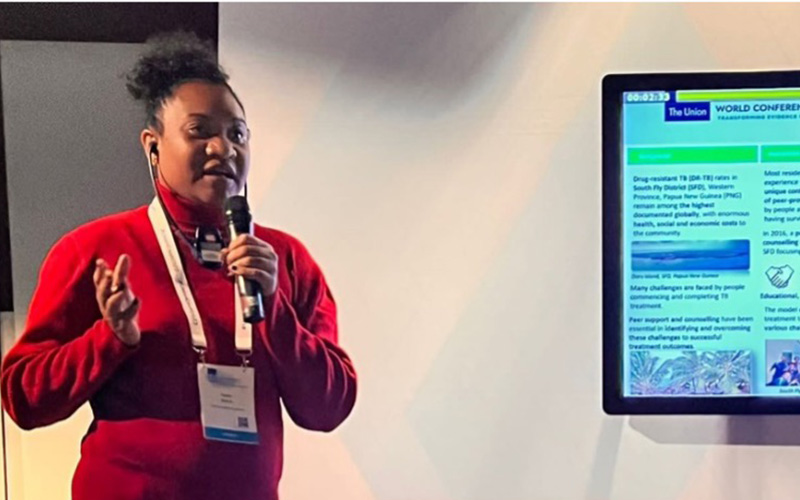
Papua New Guinea (PNG) has one of the highest rates of tuberculosis (TB) transmission in the world, and Daru is at the epicentre.
The rise of multi-drug resistant TB (MDR-TB) has made the situation even more challenging, requiring longer, more complex, and exponentially more expensive treatments for patients.
Ruth Bala leads the DFAT-funded Reducing the Impact of Drug Resistant TB (RID-TB) Program counsellors based in Daru, where she collaborates with her team to support patients throughout their journey.
Their role is crucial to empower patients to continue with their full course of antibiotics throughout six to nine months, or up to two years for MDR-TB.
“TB can kill you, but not if you adhere to your treatment. There are also risks of infecting others if you are not on treatment early,” she said.
Once diagnosed, many people find themselves scared, or struggling with side effects or symptoms. Some also face discrimination and stigma.
“Counsellors educate patients so they can make informed decisions for themselves and their families,” she said.
Internal reporting shows the rate of patient treatment completion has increased since Ms Bala joined the team in 2022.
“This means we’ve increased community awareness and education in newly enrolled patients based on our latest data, better contact tracing and preventative therapy for family members under five years old,” she said.
Ms Bala was awarded the Crocket Murphy Travel Award to present at the Union World Conference on Lung Health in Paris, France, last year, and more recently secured funding to expand accommodation for patients in Daru.

“The facilities here can’t accommodate everyone, it’s a big challenge,” she said.
“The idea came about to bring in stakeholders to discuss solutions or options including a transit house.
“Collaboration and partnership, coupled with support from the PNGAusPartnership, are key because we can maximise benefits through different partners and organisations, which come together with their various capacities and strengths.”
Ms Bala is passionate about helping the people she meets in her role, but it’s not without its hurdles.
“In PNG, it’s a challenge for women to take up leadership roles given the norms of our society and expectations,” she said.
“For me, it’s about finding a balance between my professional and personal life.
“I ensure I provide sufficient evidence or justification for my decision and take a respectful approach from the start.
“Additionally, I find that having a supportive partner who understands the expectations of my role truly makes a difference.”
She adds that having cultural knowledge and shared experiences helps her develop trust among her patients.
“I've had family members affected by TB, some of whom have passed away from the disease,” she said.
“This personal experience is what drives me to work in this field, to provide the support I wasn't able to offer to those in my family.
“Patients trust us, and allow us into their lives, and that's a privilege.”
RID-TB is supported by the Australian Government via the PNG Australia Transition to Health (PATH) Program.

